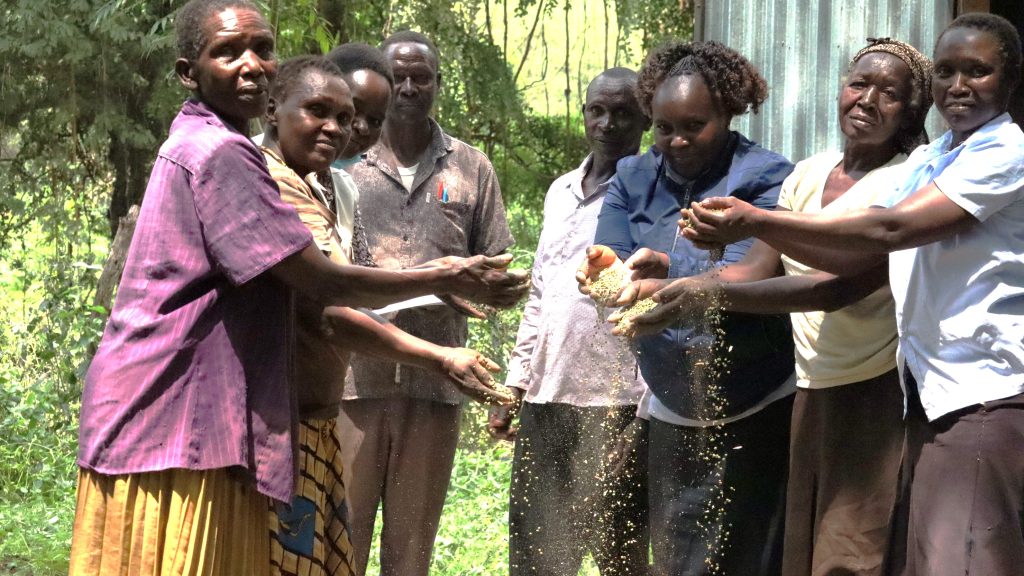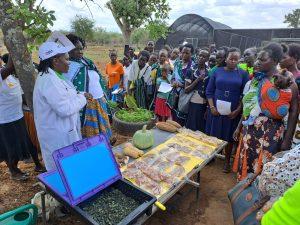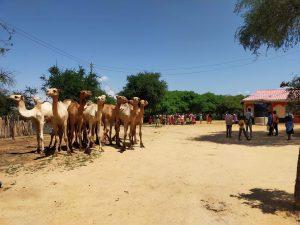In Elgeyo Marakwet County, sustainable farming practices are transforming lives and improving livelihoods. Through the FOSECCA (Food Security and Climate Change Adaptation) Project, members of Kipsumbeiwo Self Help Group have embraced climate-smart agriculture to grow green grams, turning small demo plots into a major source of food security and income.
Green gram farming has emerged as an effective solution to challenges posed by climate change, soil degradation, and limited crop diversity. These crops thrive in semi-arid conditions and require minimal water, making them ideal for areas prone to erratic rainfall. The adoption of green grams has not only helped improve household nutrition but also created opportunities for income generation, reducing the vulnerability of families to hunger and poverty.
Under the FOSECCA (Food Security and Climate Change Adaptation) Project, farmers have been introduced to modern farming techniques, including proper spacing, soil fertility management, and pest control. Demonstration farms serve as learning grounds where members gain hands-on experience, which they replicate in their individual farms. This approach ensures practical learning and builds confidence in sustainable agriculture.
The benefits of green gram farming go beyond immediate food security. The crop is a rich source of protein and essential nutrients, contributing to improved diets for families. Additionally, surplus produce is sold in local markets, boosting household incomes and enabling members to invest in other economic activities. Sustainability is at the heart of this initiative. By encouraging crop diversification and soil conservation, the FOSECCA Project helps restore degraded land and reduce environmental pressure.
The story of Kipsumbeiwo Self Help Group is an inspiring example of how collective action and the right agricultural practices can build resilient communities. By embracing innovation and working together, farmers are shaping a future where food security, environmental sustainability, and economic empowerment go hand in hand.
As more communities adopt similar strategies, the dream of a hunger-free and climate-resilient region becomes increasingly achievable. Green gram farming is more than an agricultural activity; it is a pathway to sustainable livelihoods and long-term prosperity.





